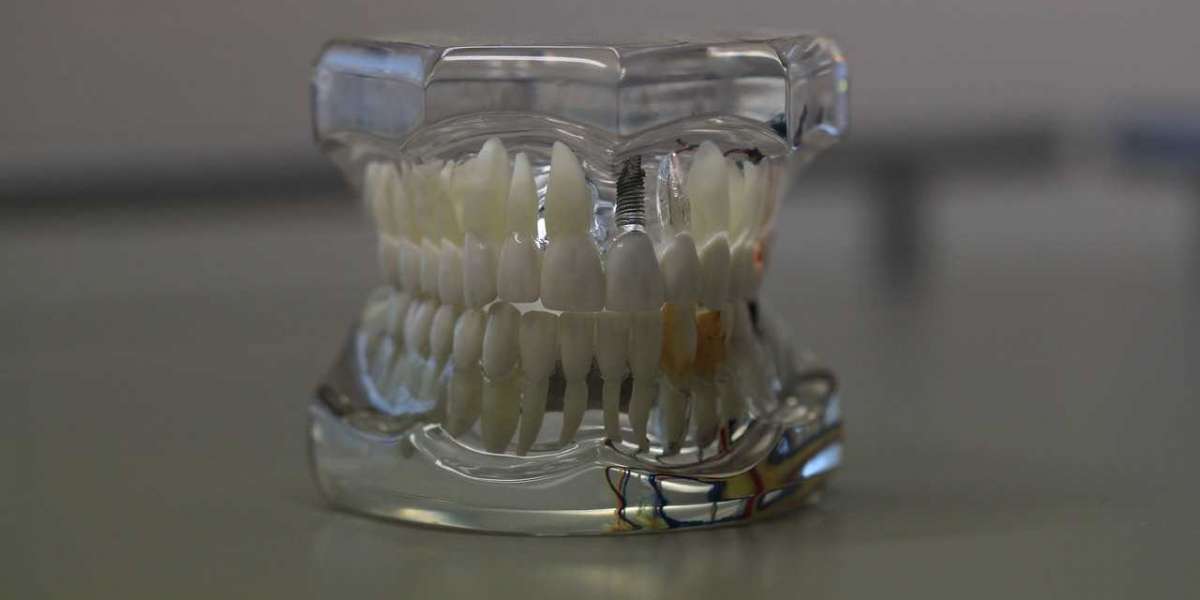Fortunately, modern dentistry offers a reliable solution: teeth implants for single tooth replacement. This innovative procedure restores functionality and aesthetics while preserving your oral health. Here’s what you need to know about the process and what to expect.
What is a Dental Implant?
A dental implant is a titanium post that serves as an artificial tooth root. It is surgically placed into the jawbone, providing a sturdy foundation for a custom-made dental crown that mimics the appearance and function of a natural tooth. Dental implants are a popular choice for single tooth replacement due to their durability, natural look, and ability to prevent bone loss.
Why Choose a Dental Implant for Single Tooth Replacement?
Dental implants offer several advantages over other tooth replacement options, such as bridges or partial dentures. Here are the key benefits:
Natural Appearance: The custom crown is designed to match the color, size, and shape of your existing teeth, blending seamlessly with your smile.
Durability: With proper care, dental implants can last a lifetime, making them a cost-effective long-term solution.
Preservation of Jawbone: Implants stimulate the jawbone, preventing bone loss that often occurs after tooth loss.
No Impact on Adjacent Teeth: Unlike bridges, implants do not require grinding down neighboring teeth for support.
Improved Functionality: Dental implants restore full chewing ability and speech clarity.
The Implant Process: Step-by-Step
The journey to replace a single tooth with a dental implant typically involves several stages, spanning a few months. Here’s an overview of what to expect:
1. Initial Consultation
The process begins with a consultation with your dentist or oral surgeon. During this visit, they will:
Evaluate your oral health.
Take X-rays or 3D scans to assess your jawbone structure.
Discuss your medical history and any potential risks.
Develop a personalized treatment plan.
2. Preparation and Bone Grafting (if Needed)
If your jawbone lacks sufficient density to support an implant, a bone graft may be required. This procedure involves adding bone material to strengthen the jaw. In most cases, healing takes a few months before proceeding with the implant placement.
3. Implant Placement Surgery
During the surgical procedure:
The dentist numbs the area with local anesthesia.
A small incision is made in the gum to expose the jawbone.
The titanium implant is inserted into the bone and secured in place.
The gum is then sutured, leaving the implant to integrate with the bone over 3-6 months (a process called osseointegration).
4. Abutment Placement
Once the implant has fused with the jawbone, an abutment (a connector piece) is attached to the implant. This step involves reopening the gum tissue to access the implant, and it typically requires minimal recovery time.
5. Crown Placement
The final step is attaching the custom-made crown to the abutment. The crown is crafted to match your natural teeth in color, shape, and size, ensuring a flawless and functional finish.
Recovery and Aftercare
After the implant procedure, you can expect some mild discomfort, swelling, or bruising, which typically subsides within a few days. Over-the-counter pain relievers and ice packs can help manage these symptoms. Here are some tips for a smooth recovery:
Practice Good Oral Hygiene: Brush and floss around the implant daily to prevent infection.
Avoid Hard Foods: Stick to soft foods for the first few days.
Follow Your Dentist’s Instructions: Attend all follow-up appointments and adhere to care guidelines.
Quit Smoking: Smoking can hinder healing and increase the risk of implant failure.
How Much Does a Single Tooth Implant Cost?
The cost of a single tooth implant varies depending on factors like location, the need for bone grafting, and the type of crown used. On average, the total cost ranges between $3,000 and $5,000. While this may seem high, the longevity and benefits of dental implants make them a worthwhile investment in your oral health.
Is a Dental Implant Right for You?
Dental implants are an excellent option for individuals with good oral and overall health. However, certain conditions, such as uncontrolled diabetes or smoking, may impact the success rate. A thorough evaluation by your dentist will determine if you’re a suitable candidate.
Final Thoughts
Teeth implants in Watford for single tooth replacement offer a permanent, natural-looking, and functional solution to restore your smile and confidence. While the process requires time and investment, the results are well worth it. By understanding what to expect and working closely with your dental professional, you can ensure a successful and satisfying outcome.




